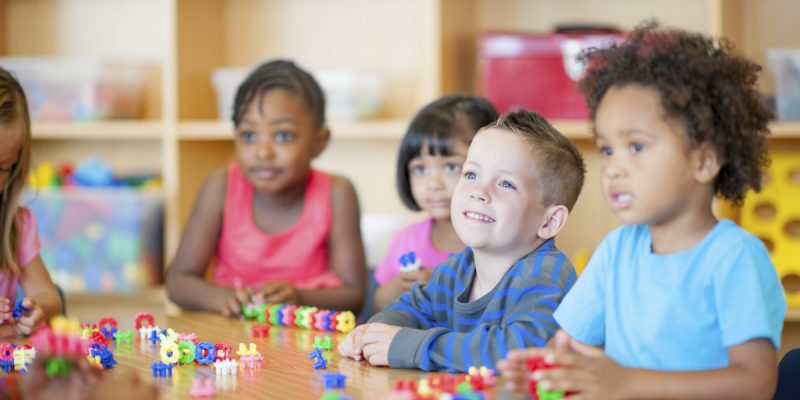Language development in kindergarten
In a way, we learn our native language our whole lives: at any age, you can learn some new words, like legal or financial terms, for instance, or pick up new skills, such as public speaking. But of course, the main bulk of language development happens at an early age, in babies and toddlers.
Language development in children happens all through kindergarten and early school years, but many psychologists and educators believe that the first three years of a child’s life, when their brain is developing and maturing, is the most crucial period for developing speech and language skills.
In this article, we are going to take a look at language development in kindergarten: the key milestones to pay attention to as well as some of the ways parents can facilitate language development in their children.
This is part two, of a two-part article on language development.
You can read part one here: Language Development in Babies
Key milestones
Language development is an individual process that depends on many internal and external factors. Each child’s path is unique, and comparing your child to others won’t necessarily tell you how well they are developing.
However, there are a few key milestones that you can keep in mind to know if your child’s language development is appropriate for their age. Here are some of them.
At 2-3 years old, children start speaking in longer, more complex sentences (3-4 words). They are getting better at saying words correctly, although strangers may still struggle to understand what they say. Children can recognize and identify almost all common objects, use pronouns and some plurals, know some spacial concepts (in, on) and descriptive words (big, happy). They are able to answer simple questions and use question inflections to ask for something.
At 3-5 years old, children’s conversations become longer and more abstract and complex. They understand basic grammar and start experimenting with more complex sentences. They can group objects together, like food or animals, can identify colors. At this age, children begin to have fun with the language, enjoy poems. They want to talk on a wide variety of topics, and their vocabulary keeps growing.
By the age of 5, children usually have a vocabulary of around 2,500 words and talk in complete, grammatically correct sentences. They ask a lot of ‘why?’, ‘what?’ and ‘who?’ questions. They can make sentences of 8 words and longer, describe objects, and use their imagination to create stories.
How parents can help
One of the key things you can do as a parent at this age is to let your child talk: give your child opportunities to use language in a variety of situations. Take time to listen to your child and when you are listening to them model proper listening behavior.
It is also important to expose your child to language and let them listen. Try to avoid baby-talk – sounds and nonsense words. You can use simple grammar and words, but your speech should be clear and correct.
It is also important to engage your child in activities and games that require listening and following directions, as well as other age-appropriate language activities: read and sing nursery rhymes together, read and tell stories and discuss them with your child.
In kindergarten, your child will be immersed in various forms of formal and informal learning. Still, communication at home remains essential for a child’s language development. Through constant communication with your child’s educators, you can find out what language skills are taught in the kindergarten and how, how your child is doing, what you can do at home to facilitate their progress.
However, keep in mind that language learning shouldn’t be a burden for your child. Putting too much pressure on them in this respect can have a negative effect. To achieve the best results, make it fun, something you enjoy doing together as a part of your daily routine. Talking a lot to your child is good not only for language development – it can boost their overall development as well.
_______________________________
If you enjoyed this article, you may also like:

